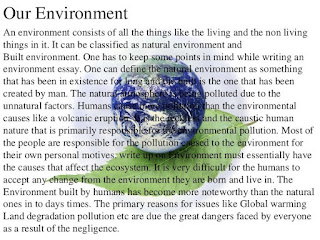Environmental writing, also known as eco-literature or nature writing, is a dynamic genre that explores the relationship between humanity and the natural world. Through prose, poetry, and essays, environmental writers strive to raise awareness about pressing ecological issues, advocate for conservation, and inspire readers to take action.
The Power of Environmental Writing
Environmental writing is not simply a form of creative expression; it is a powerful tool that can have a lasting impact on individuals and society as a whole. By immersing readers in the beauty and fragility of nature, environmental writers evoke empathy and foster a sense of responsibility towards environmental stewardship.
Moreover, environmental writing serves as a platform to amplify the voices of marginalized communities and highlight the disproportionate impacts of environmental degradation on vulnerable populations. It addresses social justice issues intertwined with ecological concerns, emphasizing the interconnectedness between human rights and a healthy environment.
Inspiring Change and Action
One of the primary goals of environmental writing is to inspire change and action. By conveying the urgency of environmental crises through vivid descriptions and personal narratives, these writers help readers comprehend the gravity of the situation and recognize the need for collective efforts to address ecological challenges.
Environmental writing offers tangible solutions and practical steps that individuals and communities can take to contribute positively to the environment. Whether it is reducing carbon footprints, supporting local conservation initiatives, or advocating for sustainable practices, the writing encourages readers to embrace a more environmentally conscious lifestyle.
The Role of Environmental Writers
Environmental writers play a vital role in not only documenting environmental issues but also acting as advocates and change agents. They use their words to encourage public discourse, challenge societal norms, and hold policymakers and corporations accountable for their actions that impact the environment.
These writers have the ability to connect science, emotions, and ethics, creating compelling narratives that bridge the gap between abstract data and human experiences. By weaving facts and personal stories together, they make complex environmental problems relatable and accessible.
A Call to Action
As readers, we have the power to shape the world in which we live through our choices and actions. Environmental writing inspires us to become conscientious citizens, encouraging us to make environmentally friendly decisions while demanding change from those in power.
So, let us immerse ourselves in the world of environmental writing. Let us be captivated by its stories and enlightened by its insights. Most importantly, let us use the knowledge gained to become active participants in the fight for a sustainable and thriving planet.
- Educate yourself about environmental issues and their impact.
- Support local environmental organizations and initiatives.
- Advocate for renewable energy sources and sustainable policies.
- Reduce your carbon footprint by making conscious lifestyle choices.
- Engage in discussions and raise awareness among your family and friends.
By following these steps, we can transform our love for nature ignited through environmental writing into concrete actions that contribute to the preservation of our planet for future generations.



No comments:
Post a Comment